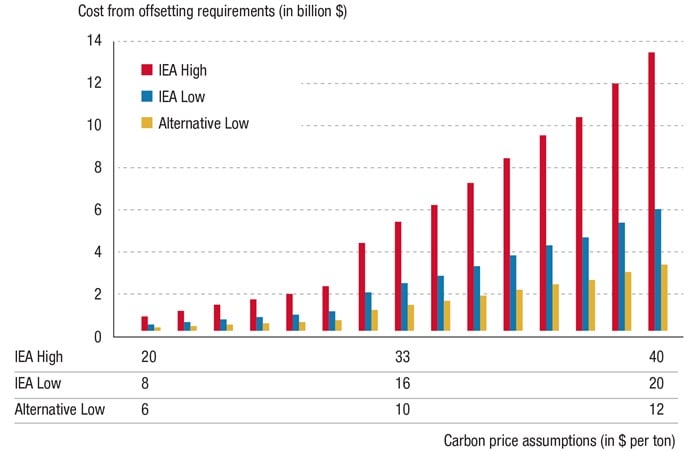Read time: 8 minutes
The Carbon Offsetting and Reduction Scheme for International Aviation
The CORSIA is a global scheme to address carbon emissions from air travel, running from 2021 to 2035. It complements a broader package of measures to help the International Civil Aviation Organisation (ICAO) achieve its goal to make all growth in international flights carbon-neutral from 2020 onwards. The CORSIA is a market-based mechanism that relies on the use of emissions units (carbon credits) from the voluntary carbon market to offset the amount of CO2 emissions that cannot be reduced through technological and operational improvements, and sustainable aviation fuels (SAFs).
The CORSIA, implemented in phases, compares the total CO2 emissions for a year against a baseline. From 2021, any CO2 emissions from flights that exceed the baseline will have to be offset by operators governed by the scheme.

Approved carbon offsets under the CORSIA
Only certain approved types of carbon credits that meet the strict ICAO emissions unit criteria can be used to meet the compliance obligations under the CORSIA. So far, ICAO has approved credits issued under the following voluntary carbon market programs for the pilot phase:
- American Carbon Registry
- China GHG Voluntary Emission Reduction Program
- Clean Development Mechanism
- Climate Action Reserve
- The Gold Standard
- Verified Carbon Standard
According to ICAO, the pilot and first phases will be identical, save for how the offsetting requirement for operators is determined. While this implies that the approved list of eligible carbon credits will not expand ahead of the first phase, ICAO is required to review the CORSIA every three years, beginning in 2022. The review will consider its impact on aviation growth and recommend, as necessary, adjustments to the scheme. This may result in changes to the existing list of approved offset programs.
Current and future demand for carbon offsets
There is a projected demand for around 1.6 billion carbon credits under the CORSIA over its current lifetime. Currently, there is sufficient supply of carbon offsets on the market to meet demand, as fewer credits will be required to be surrendered in the early phases of the scheme. However, demand for credits will increase every year in line with aviation growth, due to the nature of the carbon-neutral growth objective.
Prices for carbon offsets on average stand at just $3-5 per metric ton of CO2 at present, reflecting a well-supplied market. However, prices are starting to increase across both the regulated and voluntary carbon markets as other drivers of demand start to make an impact, most notably, the Paris Agreement commitments and market mechanisms under Article 6. These are expected to become operational shortly and to significantly increase demand for carbon offsets. Currently, it is not clear how the Paris Agreement commitments and mechanisms will interact with the voluntary carbon market, but they create a potential threat to the supply of carbon credits to the CORSIA. There has also been a huge increase in demand for credits from the private sector, as businesses pursue carbon neutrality and ESG goals that will need to be met, in part, through acquiring offsets. The demand for offsets from CORSIA-obligated aviation operators has been significantly lower than was originally forecast, partly as a result of the pandemic. The sector’s emissions fell sharply in 2020 due to widespread travel restrictions, which has effectively pushed expected demand for credits back by a few years. ICAO has responded by adjusting the scheme’s pilot phase – the emissions baseline is now based on 2019 emissions only, rather than the average of both 2019 and 2020. However, the surplus will not last forever, as demand grows in the wake of COVID-19.
- Demand for carbon credits to meet CORSIA obligations will increase annually in line with the growth trajectory of the aviation industry
- Competition for CORSIA-compliant carbon offsets is expected to increase as national and corporate carbon reduction initiatives start to make an impact
- Fuel price volatility is expected to have more impact on international aviation than carbon offsetting costs; however, offsetting costs will inevitably need to be pushed onto customers, creating additional price pressures
- Sustainable aviation fuels will help reduce carbon emissions, but may not be sufficiently developed to negate the need for the CORSIA past its projected end date of 2035

